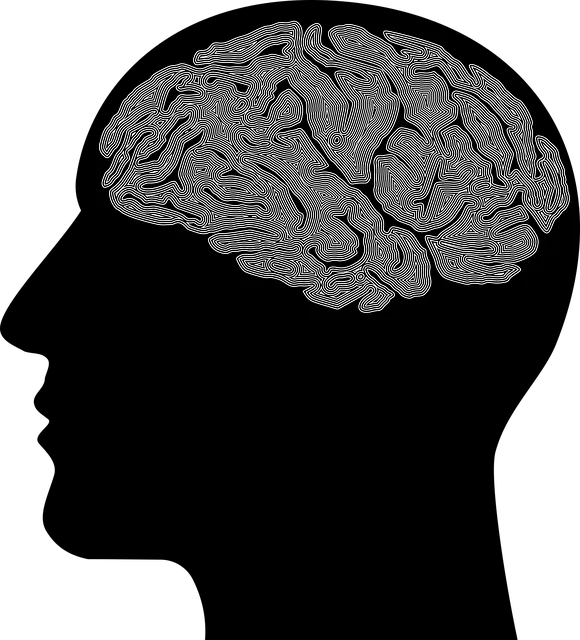The Kaiser Permanente Mental Health Center in Boulder prioritizes patient safety and care through comprehensive risk assessment and management. They employ evidence-based methods to evaluate risks across various mental health services, addressing emotional fragility, trauma, and medication interactions. Their strategy includes personalized interventions, conflict resolution techniques, and tailored education programs. By integrating harm minimization plans with stress reduction methods, cultural competency, and proactive training, the center ensures a safe, therapeutic environment that promotes positive patient outcomes while minimizing risks. Regular updates based on best practices and patient feedback reinforce their commitment to continuous improvement in mental health care.
“Risk assessment and harm minimization are vital components of healthcare management, especially at comprehensive facilities like the Kaiser Permanente Mental Health Center Boulder. This article explores a strategic approach to ensuring patient safety and well-being. We delve into the process of understanding risk assessment at Kaiser Permanente Boulder, identifying potential harms in mental health settings, and developing robust plans for harm minimization. Additionally, we discuss strategies for creating safe, therapeutic environments and emphasize continuous evaluation for effective risk management.”
- Understanding Risk Assessment at Kaiser Permanente Mental Health Center Boulder
- Identifying Harms and Vulnerabilities in a Healthcare Setting
- Developing a Comprehensive Harm Minimization Plan
- Implementing Strategies for Safe and Therapeutic Environments
- Continuous Evaluation and Improvement in Risk Management
Understanding Risk Assessment at Kaiser Permanente Mental Health Center Boulder

At Kaiser Permanente Mental Health Center Boulder, risk assessment is a cornerstone of their comprehensive approach to patient care and safety. This process involves meticulously evaluating potential risks associated with various aspects of mental health treatment, from individual therapy sessions to group support programs. By employing evidence-based methodologies, healthcare professionals at the center analyze factors such as patient history, medication interactions, and environmental hazards to predict and mitigate possible harm.
Their understanding of risk assessment goes beyond mere identification; it includes designing tailored interventions and Mental Health Education Programs to address identified risks. Additionally, the center incorporates Conflict Resolution Techniques into its risk management planning, ensuring that disputes or conflicts among patients, staff, or family members are resolved peacefully and effectively. This holistic approach, combined with rigorous Risk Management Planning for Mental Health Professionals, positions Kaiser Permanente Mental Health Center Boulder as a leader in promoting positive outcomes while minimizing potential harm within the mental health care setting.
Identifying Harms and Vulnerabilities in a Healthcare Setting

In a healthcare setting like the Kaiser Permanente mental health center Boulder, identifying harms and vulnerabilities is a critical step in risk assessment and harm minimization planning. This process involves meticulously scanning for potential risks that could negatively impact patient well-being, focusing both on physical and psychological safety. For instance, at a mental health center, vulnerabilities might include patients’ emotional fragility, prior traumatic experiences, or medication interactions. By recognizing these, healthcare providers can proactively implement strategies to mitigate risks, ensuring a supportive environment for recovery.
The identified harms and vulnerabilities inform the development of tailored interventions, such as enhancing staff training in mood management and emotional regulation techniques, implementing stress reduction methods, and establishing clear protocols for crisis intervention. These measures not only aim to prevent harm but also to promote positive outcomes for patients, reflecting the comprehensive approach to care at Kaiser Permanente mental health center Boulder.
Developing a Comprehensive Harm Minimization Plan

Developing a comprehensive harm minimization plan is an integral part of risk assessment and mental health care at Kaiser Permanente Boulder’s mental health center. This process involves identifying potential risks and implementing strategies to mitigate them, ensuring patient safety and well-being. Such plans cater to various aspects, including but not limited to, individual patient needs, healthcare provider cultural competency training, and stress reduction methods.
By integrating Risk Assessment for Mental Health Professionals, the center ensures that every patient receives tailored care. This includes assessing and addressing cultural factors that may impact mental health treatment. Additionally, promoting Stress Reduction Methods equips both patients and healthcare providers with tools to manage stress, enhancing overall well-being and reducing potential harm.
Implementing Strategies for Safe and Therapeutic Environments

Creating safe and therapeutic environments is a cornerstone of mental health care, as exemplified by centers like Kaiser Permanente mental health center Boulder. This involves implementing strategies that foster a sense of security and support for individuals navigating mental illness. One key approach is promoting self-care routine development for better mental health. Encouraging patients to establish structured daily routines can enhance resilience building, allowing them to manage stress and improve overall well-being.
Additionally, these environments should actively work towards mental illness stigma reduction efforts. By creating inclusive spaces that prioritize understanding and empathy, centers like Kaiser Permanente Boulder contribute to a broader culture shift, where individuals feel comfortable seeking help without fear of judgment. This not only improves patient outcomes but also fosters a sense of community and belonging.
Continuous Evaluation and Improvement in Risk Management

At the Kaiser Permanente mental health center Boulder, continuous evaluation and improvement drive robust risk management practices. This involves regularly reviewing and updating harm minimization plans based on evolving best practices, new research findings, and feedback from patients and staff. By fostering a culture of data-driven decision-making, the center ensures that strategies to mitigate risks are both effective and relevant. For instance, incorporating principles of Mind Over Matter and Emotional Intelligence can enhance patient coping mechanisms and resilience, thereby reducing potential harm.
The process incorporates Inner Strength Development as a core component, encouraging patients to leverage their inner resources for recovery. This proactive approach not only minimizes risks during treatment but also equips individuals with tools to navigate challenges post-discharge. Through continuous evaluation, the Kaiser Permanente mental health center Boulder remains at the forefront of harm minimization, prioritizing patient safety and well-being.
Risk assessment and harm minimization planning are vital components of creating safe and therapeutic environments at healthcare institutions, such as the Kaiser Permanente Mental Health Center Boulder. By understanding the unique risks within their settings, identifying vulnerable populations, and developing comprehensive strategies, healthcare centers like this one can foster a culture of safety. Implementing these plans requires ongoing evaluation and improvement to ensure effectiveness in mitigating potential harms. This proactive approach not only protects patients and staff but also enhances the overall quality of care provided at Kaiser Permanente Mental Health Center Boulder.






